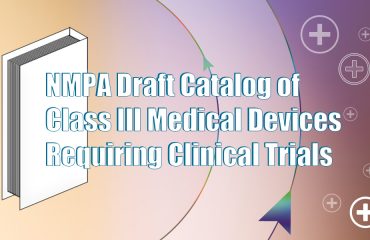Pre-phase III drug clinical trial meeting guidelines have been released by the National Medical Products Administration’s (NMPA) Center for Drug Evaluation (CDE) for trial implementation as of March 22, 2023.
The scope of the guidelines and technical requirements encompasses both chemical innovation drugs and improved new drugs.
The main objective is to address common issues and provide general guidelines for the pre-phase III pharmacology meeting of innovative chemical drugs, in order to improve the quality and effectiveness of communication between applicants and drug review organizations.
During the pre-phase III pharmacy meeting, applicants must clearly define the purpose of the meeting, ask specific communication questions, and prepare detailed information and study data to identify and address key pharmacy questions as early as possible, to avoid having to supplement the study later. Phase III clinical trials are a critical stage in verifying the therapeutic effect of a drug. Applicants must use scientific and rigorous clinical trial data to prove the safety and efficacy of the drug. Given the high investment costs and risks associated with conducting these trials, it is essential for applicants to communicate with professional technical institutions, such as drug review centers, on major issues prior to conducting phase III clinical trials.
Based on the technical review summary conducted by the NMPA’s CDE, it was found that there are some common key technical issues in the pharmacological study of Active Pharmaceutical Ingredients (APIs) and formulations. To help applicants avoid the need for additional studies, the CDE issued this technical requirement to guide them in planning their research in advance. It is also recommended that applicants refer to relevant guidelines, such as the “Pharmacological Research Information Guide for Phase III Clinical Trials of Innovative Drugs (Chemical Drugs)”, and work in accordance with the general rules of innovative drug development.
In the section on drug substance, several common issues are identified such as unreasonable selection of starting materials and insufficient analysis of potential impurities and degradation products. The technical guideline highlights the importance of following established guidelines, such as ICH Q11 and its Q&A, for selecting starting materials and developing impurity control strategies. The evaluation of mutagenic impurities is also emphasized, with guidance to follow ICH M7 and S9 for mutagenicity studies.
The technical guideline also provides guidance for controlling the crystal form of the drug substance and ensuring the quality control of APIs. It highlights the importance of developing quality control items for API quality standards, focusing on related substances, isomer impurities, and residues, among others. The impact of changes in the prescription process on the quality, safety, and connectability of the preparation is also discussed.
Regarding preparations, the technical guideline identifies common problems in the degradation of products and the study of dissolution and release. It emphasizes the importance of comprehensive analysis of degradation products and the optimization of dissolution or release methods, including the development of a research plan for discrimination of these methods. The technical guideline also recommends the use of established guidelines, such as ICH Q3B, for impurity analysis.
Applicants are invited to discuss fully with drug review agencies on key technical issues in pharmacological studies prior to Phase III clinical trials in particular for:
- complex processes and quality control of difficult APIs (such as peptides, small molecules of nucleic acids, polymer products, containing multiple chiral centers, containing fermentation processes or natural sources of drugs),
- complex formulations (such as microspheres / microemulsion / liposomes, micelles, transdermal formulations, inhalation formulations, suspension injections, etc.)
- and complex pharmacological combinations of products.
To speed up the listing registration process for innovative drugs, such as conditional approval procedures, it’s important to communicate about key clinical trials before Phase II clinical trials, following these technical requirements. It’s recommended that applicants unify their pharmacological research plan with the clinical trial study plan and communicate with the drug review agency in a timely manner. Compliance with the technical requirements is necessary for the marketing application for a declaration of listing. Staying informed and communicating effectively is essential to streamline the listing process for innovative drugs.
Overall, the technical guideline provides valuable guidance for addressing common issues in the development of pharmaceutical products, emphasizing the importance of following established guidelines and continually improving research and quality control measures.
Contact Cisema for assistance in preparing for your Pre-III pharmacy meeting and avoiding the common key technical issues in API pharmacological studies. We provide the necessary guidance and support to help ensure that your research meets the required standards.
Further information
Read the original guidelines for pre-phase III drug clinical trial meetings announcement.
Read our article on clinical trials for new drug registrations report and Guidelines on Clinical Trials.

 Deutsch
Deutsch  Italiano
Italiano  Français
Français  日本語
日本語  한국어
한국어 



